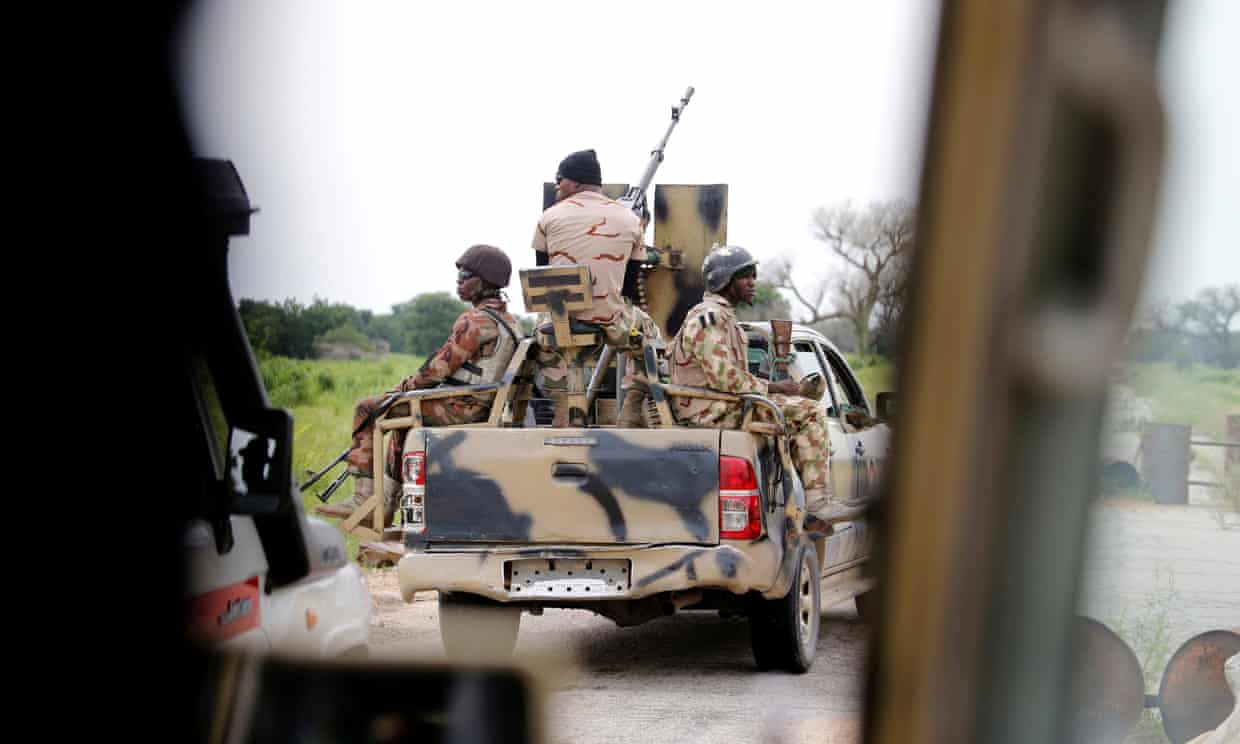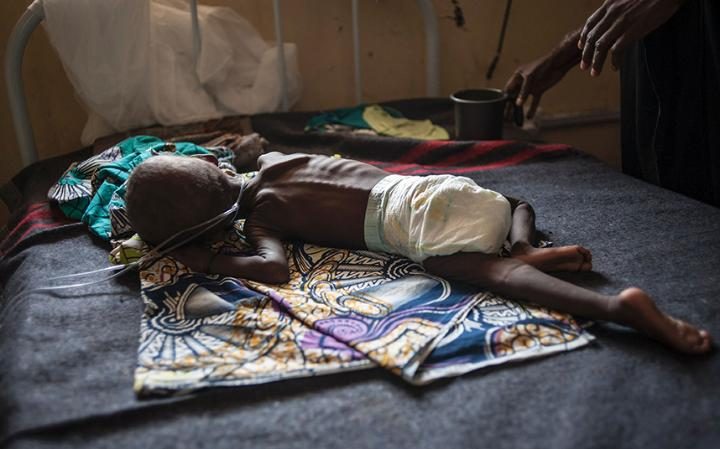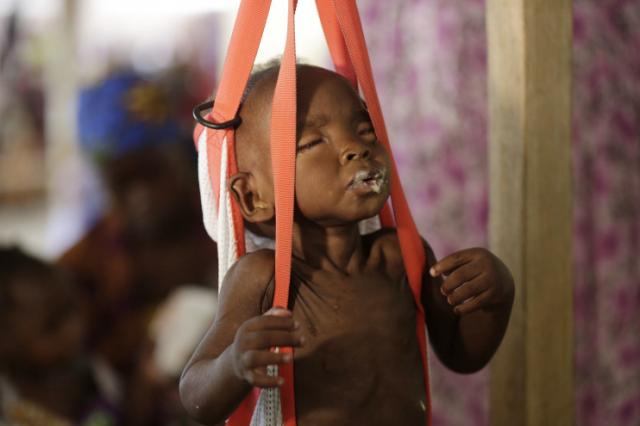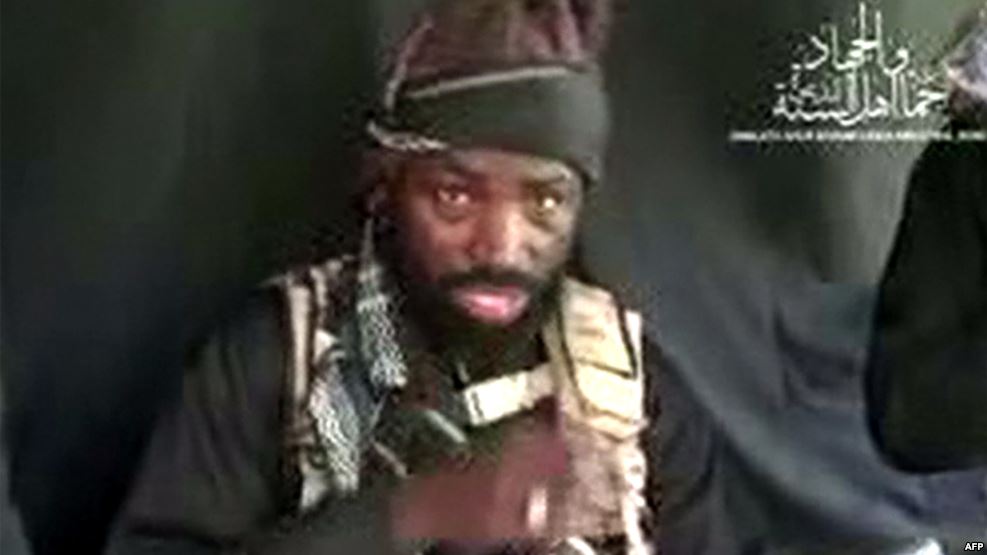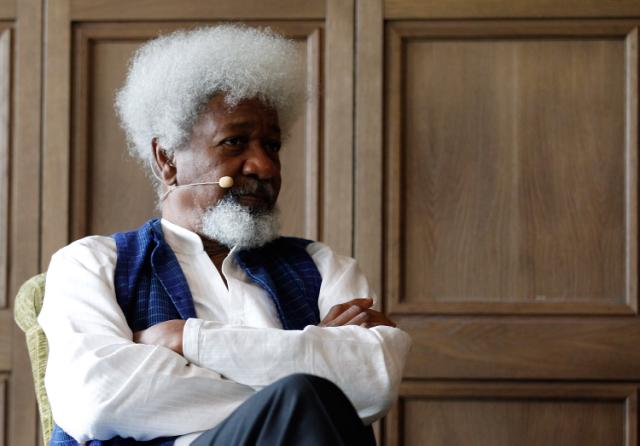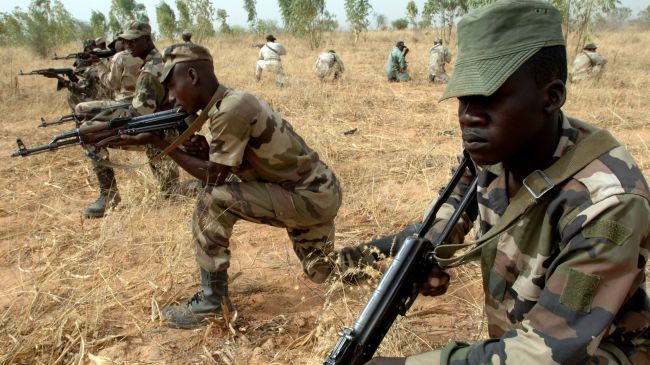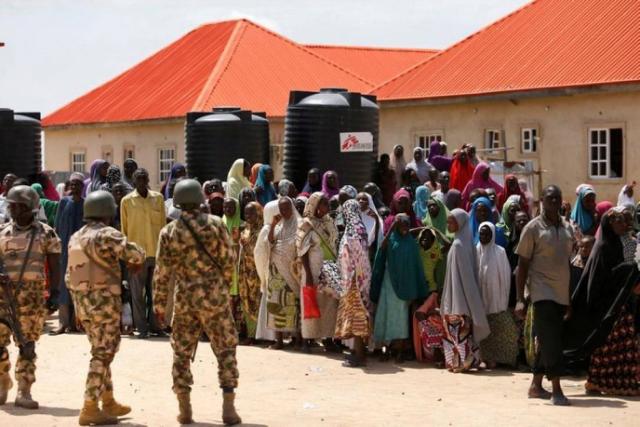By Rafiu Ajakaye/
Fresh high-profile losses in Nigeria’s battle with Boko Haram militants are leading to analysis of the resurgence, with some chalking it up to weapons shortfalls as well as that bugbear of armies throughout history, the weather – or in this case, the dry season.
Late Monday Nigeria lost another senior army officer in an ambush by Boko Haram militants, barely two weeks after one of the country’s most celebrated military commanders, Col. Muhammadu Abu-Ali, and five other soldiers were felled by insurgents’ bullets.
Quoting military sources on condition of anonymity due to restrictions on talking to the media, local media say Lt. Col. B.U. Umar, the commanding officer of the 114 army special task force battalion, was killed in an ambush by militants in the Bita area of the northeast Borno state. A few other soldiers were reported injured in the incident.
These deaths only added to the rising tally of military casualties in the region in recent months. Noticeably, there has been surge in Boko Haram activities since late September. Heavy fighting in southern and especially northern Borno, an area where analysts say Boko Haram remains strong, has led to casualties on both sides. Several soldiers were declared missing in September, followed by a series of suicide bombings in October killing dozens in Maiduguri, Borno’s capital.
Freedom Onuoha, a counterinsurgency analyst who teaches at the National Defense College Abuja, said the resurgence could be blamed on a number of factors, including the coming of the dry season. During the season, he explained, the militant group is able to move fighters and logistics more easily.
“The resurgence of Boko Haram attacks may be a product of several factors such as access to more weapons by the group, better intelligence on military strategies, and plans from their moles,” he told Anadolu Agency.
– Weapons deficit factor
Onuoha said a weapons deficit due to wear and tear or delayed procurement may also play a role in the rise of militant attacks, as may greater support from foreign fighters fleeing the conflicts in Libya, some with access to weapons.
Last week, there were reports of Washington again blocking Nigeria’s efforts to procure some military assets to prosecute the conflict. Sources at the country’s Defense Ministry told Anadolu Agency that most of the Alpha jets currently in use in the northeast are weak and urgently need replacing.
“Efforts are ongoing to purchase some A-29 Super Tucano attack helicopters but no serious headway has been made,” a source said, asking not to be named due to the sensitivity of the issue.
Defense spokespersons did not respond to Anadolu Agency’s request for comment.
Similar attempts by Nigeria to purchase military platforms during the previous Goodluck Jonathan administration were also frustrated by the United States, citing human rights abuses.
Onuoha said the army is also overstretched due to the many internal operations it is involved in. Troops are deployed in the oil-rich delta where militants have resumed bombing of critical national assets.
“However the situation of the military is made worse by a terrible deficit in critical platforms that could confer a battle space advantage, particularly aerial assets that make it easier to identify and neutralize insurgents in an environment and terrain as difficult and complex as the northeast,” he added.
– The role of poor intelligence
Nigerian security blogger Fulan Nasrullah, famed for his knowledge of the insurgency, said the claims of resurgence appear hyped because militants have always attacked far-flung villages in raids not reported by the media.
“The dry season isn’t an alibi, it’s a fact of warfare. The amount of fighting possible in the rainy season is far less than that in the dry season,” he told Anadolu Agency, corroborating Onuoha’s statement.
Nasrullah insisted, however, that claims that Boko Haram had been subdued are at variance with “credible intelligence” that the insurgents are, at best, in “conservation mode” while retaining their core attacking assets.
The analyst said army officers who tell the truth about the real state of things are often shouted down, while their superiors reportedly feed the army headquarters and top political authorities with misinformation.
“And poor intelligence makes for poor decisions,” he added, explaining why Boko Haram continues to be a serious threat in the region.
